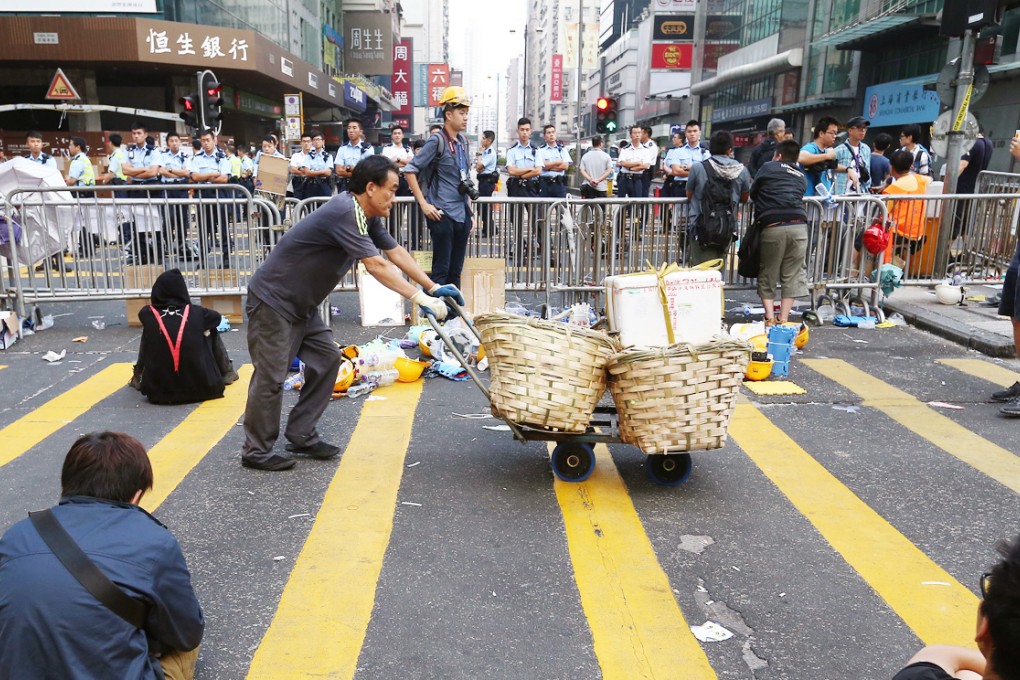Hong Kong's High Court orders protesters off roads in Mong Kok and Admiralty
Judge demands clearing of some areas in Mong Kok and Admiralty as government and students prepare for long-awaited dialogue

The High Court yesterday ordered pro-democracy protesters to leave main roads in Admiralty and Mong Kok immediately, as top officials and student leaders prepared for tonight's talks on political reform.
In response, one protester today said he was applying for legal aid to allow lawyers to represent him as an "interested party" in a fresh court hearing, in which he plans to argue the injunction goes against Hongkongers' freedom of expression.
Ng Ting-pong, 38, who quit his job as a waiter to spend the last 20 days at the Mong Kok protest site, was expecting to learn by Wednesday whether his application was successful, according to People's Power lawmaker Albert Chan Wai-yip who is aiding him.
Last night a government source said the administration had recognised it was unrealistic to try to disperse protesters by force and that officials expected demonstrations to continue for at least another month.
However, in an interview with The New York Times, Chief Executive Leung Chun-ying hinted at possible intervention by the central government if the situation remained unresolved.
"So far Beijing has left it to the Hong Kong government to deal with the situation, so I think we should try our very best … to stay that way," he was quoted as saying. "Challenging myself, challenging the Hong Kong government, at these difficult times will do no one any service, will do Hong Kong's high degree of autonomy no service."